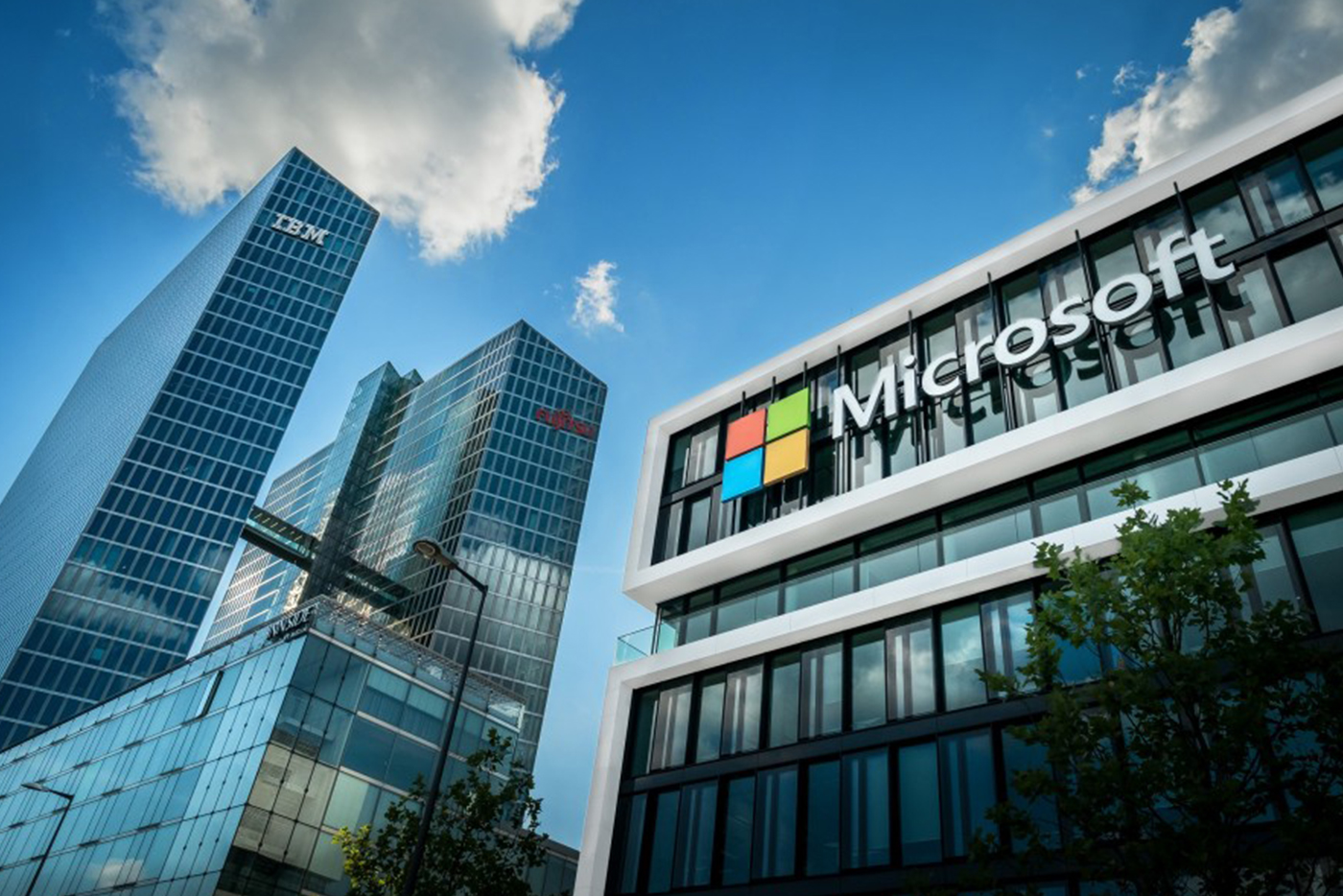How IBM And Microsoft Are Working Together To Help Create Future-Proof Organizations
15 June 2023
Next-generation technologies like artificial intelligence (AI) and hybrid cloud computing are creating unprecedented opportunities for businesses. But many find that they face challenges when it comes to modernizing apps and infrastructure in order to take advantage of them.

Large enterprises, in particular, are often reliant on systems that have been in place for years or even decades. And when they are used daily by thousands of employees, often across multiple continents, modernization can be a hugely complex and costly process.
Solving this problem is a key focus of an ongoing partnership between two giants of the technology landscape - IBM and Microsoft. Both are companies that cut their teeth in the early days of business computing and, to this day, are considered market leaders in emerging fields of new technology – from AI to quantum computing.
From the beginning, they have found themselves operating both as rivals and partners. In the eighties, for example, Microsoft’s MS-DOS platform and IBM’s personal computer hardware formed a hugely successful team, conquering the world of business computing. As technology companies diversified in the age of cloud and software-as-a-service, they often went head-to-head.
This means they have a huge amount of experience when it comes to helping businesses overcome technological challenges related to modernization.
I recently had the opportunity to speak to Tim Callaghan, IBM’s Azure CTO for the UK and Ireland, who explained some of the principles behind the partnership.
During our webinar conversation, he told me, "On a daily basis, Microsoft is supporting us with some of their capabilities – they have a team called Fast Track … who help augment our teams with their skills and latest architecture patterns … so we help create those relationships … and ensure the customers are getting the best.
“Microsoft has a wealth of experience … to help transformation happen, and we make sure we tap into all of those resources to make sure that it's Microsoft and IBM delivering."
Largely, customer and client demand has been responsible for the development of this partnership dynamic over the past few years. In this age of multi-cloud and hybrid-cloud infrastructure, enterprises find themselves relying on products and services from a spectrum of providers. Having access to expertise from both companies helps to ensure a smooth journey.
As an example, a project frequently required by Microsoft and IBM enterprise clients in recent years has been the migration and business transformation of SAP workloads to the cloud, combining automation, AI, and low-code environments to orchestrate and deliver next-generation processes. This has often required IBM consulting and Microsoft Azure teams to collaborate closely in order to understand what workloads will happily flow into Azure and what needs to remain on-premises.
Along with customer demand, other factors behind the evolution of this partnership include the emergence in recent years of a better alignment between leadership teams and the development of products and services that better complement the other’s offerings.
One major client that has recently enjoyed the benefits of this team-up has been the UK’s National Health Service. With around 1.4 million employees, the NHS is the world’s largest employer of skilled professionals. As a result, migrating services relied upon every day by highly trained experts to the cloud was no mean feat. This resulted in what Callaghan refers to as “a bit of cloud sprawl” as it developed an ecosystem around a number of platforms, including Azure and AWS.
He tells me, "So we [IBM] engaged with the NHS and created a kind of 'landing zone' – a software-defined data center structure … so we ended up migrating some of the cloud sprawl, not a central framework, providing the framework for future workloads (read more here).
“Now there’s this kind of ‘vending machine’ principle where if X line of business wants to host a workload, we can create an area carved out for them that bolts onto the core platform – that’s all driven by software.
"None of that is totally new, but it’s taken large organizations a long time to go from traditional operations to those kinds of working platforms.”
It would be glossing over a great deal of computing history to claim that Microsoft and IBM have always been the best of friends. However, the two companies have developed strong links in some areas that have been in place for over 30 years.
“The partnership wasn’t necessarily always there,” Callaghan says, "Back then, every organization was trying to win market share. There have been massive changes in recent history … it's really shifted to saying, 'let’s not win the market for every product and service, let’s work in partnership in software, in hardware, in consulting’ … it’s purely about what is the right decision for the client.”
A number of recent acquisitions have been made by IBM with the specific aim of strengthening this partnership and expanding its capabilities and expertise around the Microsoft ecosystem.
These include the acquisition of Neudesic, a leading full-stack Microsoft consultancy, in February 2022, as well as Finnish consulting services provider Nordcloud, in late 2021 (read more here). These were made with the specific intention of bolstering its capabilities to provide services to its clients that are buying into the Microsoft Azure platform in order to modernize legacy capabilities.
Another essential element of cooperation is security. This has necessitated extensive development work to ensure that products across both providers’ ecosystems are compatible from a security point of view, enabling them to work seamlessly together in order to share data in a safe way.
Overall, this ever-evolving partnership between two of the world’s leading technology companies serves as an example of how cooperation can lead to growth and rewards for clients. Their collective experience, covering decades of solving technological challenges, means they are well-placed to assist with complex challenges around modernization, deploying the wealth of expertise and resources at their fingertips in order to ensure a smooth journey into the future.
To learn more about the partnership between IBM and Microsoft, have a look here. And here are the links to the NHS case study: https://digital.nhs.uk/services/cloud-centre-of-excellence/ccoe-services and https://nordcloud.com/case-studies/nhs-england/
You can click here to watch my interview with IBM’s CTO for Azure, UK and Ireland in full, where we deep-dive into other aspects of the Microsoft-IBM partnership that are helping companies prepare themselves for the future.
Related Articles
The UK’s Bold AI Plan: A Blueprint For Leading The Future Of Technology
By now, “smart” versions exist of just about every home appliance, gadget and gizmos we can think of. However, manufacturers continue[...]
Will AI Solve The World’s Inequality Problem – Or Make It Worse?
We are standing on the cusp of a new technological revolution. AI is increasingly permeating every aspect of our lives, with intelligent machines transforming the way we live and work.[...]
How You Become Irreplaceable In The Age Of AI
In a world where artificial intelligence is rapidly advancing, many of us are left wondering: Will AI take our jobs?[...]
Why Apple Intelligence Sets A New Gold Standard For AI Privacy
In the rapidly evolving world of artificial intelligence, privacy concerns have become a hot-button issue.[...]
Can Your Device Run Apple Intelligence? What You Need To Know
Apple's announcement of Apple Intelligence has sent waves of excitement through the tech world.[...]
10 Amazing Things You Can Do With Apple Intelligence On Your IPhone
Apple Intelligence is poised to revolutionize the iPhone experience, offering a suite of AI-powered tools that promise to make your digital life easier, more productive, and more creative.[...]
Sign up to Stay in Touch!
Bernard Marr is a world-renowned futurist, influencer and thought leader in the fields of business and technology, with a passion for using technology for the good of humanity.
He is a best-selling author of over 20 books, writes a regular column for Forbes and advises and coaches many of the world’s best-known organisations.
He has a combined following of 4 million people across his social media channels and newsletters and was ranked by LinkedIn as one of the top 5 business influencers in the world.
Bernard’s latest book is ‘Generative AI in Practice’.










Social Media